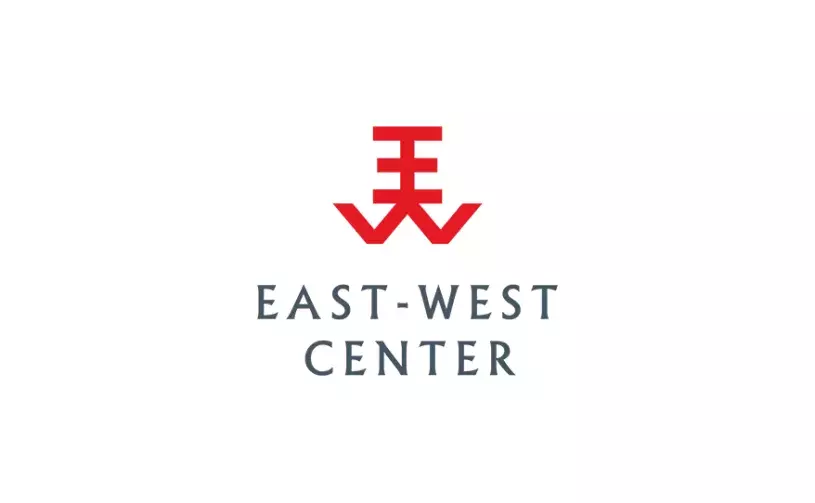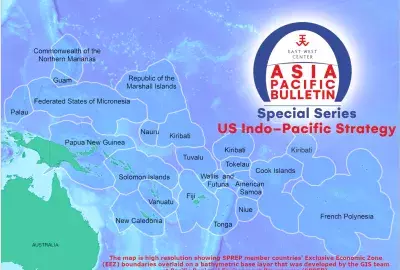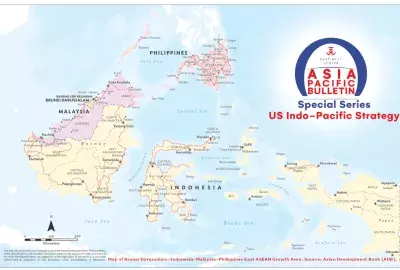Error message

|
Mendee Jargalsaikhan, Political Science PhD Candidate at the University of British Columbia, explains that “Mongolian diplomats need to disentangle foreign policy from domestic political competition.” |
When global and regional orders change and tensions among great powers intensify, small states face precarious circumstances. For states like Mongolia, contentious internal politics make skillful, professional management of foreign policy difficult. Mongolia started losing control of foreign policy mostly due to domestic political rivalries among politicians, factions, and parties. At this moment of great uncertainty, every uncoordinated Mongolian foreign policy move is costly , because the country has little room for maneuvering among its great power neighbors. The situation has become more acute as President Putin has been seeking Chinese friendship since his invasion of the Crimea and as Mongolia’s fiscal situation has deteriorated, making the government financially dependent on Chinese goodwill.
From its democratic revolution in 1990, through the early 2010s, Mongolia became something of a “sweetheart” for Western democracy promoters, mining investors, and international investment bankers. The “scrappy democracy” stood out among post-socialist Asian countries for seemingly institutionalizing democracy through repeated elections and peaceful transitions of government. With the discovery of large coal, copper, and gold deposits in the early 2000s, Mongolia seemed to establish itself as a likely candidate for sustainable development based on natural resources. However, the fiscal profligacy of the mining boom years turned the Mongolian government into a debtor — likely delighting international lenders.
Other international supporters have turned more doubtful on Mongolia’s trajectory. While Mongolia has consolidated electoral democracy, the rule of law is still weak: well-formulated policies often remain aspirational rather than implemented, and awareness of endemic corruption has undermined trust in political institutions. Mongolia has managed to secure several mining deals, but institutions are too weak to ensure the necessary stability to make long-term investment agreements pay off for investors and Mongolians alike. The country is in dire need of foreign loans to pay back sovereign debts. Despite these evident challenges neither of the two major political parties has abandoned patronage as a political principle or fought against practices that treat public office as an earnings opportunity. Even though politicians have called for increased economic relations with OECD members to forge economic ties beyond its immediate neighbors, concrete steps toward intensified economic relations seem to become secondary to parochial interests.
Despite its continued reference to “third neighbors”, Mongolia has lost the trust and perhaps even the interest of distant great powers. At the same time, these neighbors — particularly the United States, Germany, Japan, and India — have little ability to support Mongolia politically or economically.
This leaves Mongolian politicians to deal with the country’s powerful, populous geographical neighbors: China and Russia. Mongolians continue to express an affinity towards Russia, but they equally fear a reassertion of the Kremlin’s control. The past 14 months have seen the landslide victory of the Mongolian People’s Party, which has close ties with President Putin’s party, in the 2016 parliamentary elections and the election of Democratic Party candidate Khaltmaagiin Battulga — a wealthy pro-Russian politician and former sambo wrestler — in the 2017 presidential election. Many Mongolians are hopeful that these leaders will develop closer ties with President Putin. For the Kremlin, Mongolia may be a low priority in dealings with Beijing, compared to bilateral issues such as Central Asia or the Korean peninsula. The Kremlin has lost interest in Mongolia and cannot help the Mongolian government solve its own economic challenges. Rather, Moscow might pressure Mongolia to support Russia in its crisis-ridden relations with the West, join in the Eurasian Economic Union (EEU), and delay major economic projects until Russian interests have been secured — demands which will not be supported in Mongolia.
For Chinese leaders, Mongolia is an important neighbor, which has intimate connections with its autonomous regions of Inner Mongolia and Xinjiang, and which causes no major headaches concerning border demarcation, migration, or ‘three evils’ (terrorism, separatism and religious extremism) unlike China’s other 14 immediate neighbors. Xi Jinping’s government has promoted Mongolia as an exemplary case for China’s treatment of its small neighbors and a potential beneficiary of the Belt and Road Initiative (BRI). But, Mongolia’s connection with the Dalai Lama, and deep-seated anti-Chinese sentiments in Mongolia continue to exist. Unsurprisingly, Beijing briefly suspended all political talks with Mongolia in response to the Dalai Lama’s December 2016 visit. This fueled Mongolia’s fear of what economic dependence on Chinese goodwill might imply.
While some Asian third neighbors, most notably Japan and India, seem keen to leverage disagreements between Beijing and Ulaanbaatar for their own agendas, their support has mostly come through words, rather than through actions or investment. With limited alternatives, Mongolian leaders reach out to the IMF and the Kremlin for financial assistance when Chinese help becomes unavailable. Similarly, anti-Chinese political rhetoric has continued to be a useful strategy in winning domestic elections. Clearly, support for the Dalai Lama and anti-Chinese attitudes can be mobilized by populist politicians for their own political gains in the future. Unless politicians and diplomats handle these issues delicately, President Xi’s assertive China may tire of Mongolia, while Mongolia’s hopeful partners – Russia, Japan, and the US – would avoid worsening their relations with Beijing over Mongolia.
Mongolian diplomats need to disentangle foreign policy from domestic political competition. The successful conduct of its foreign policy since the 1990s resulted in settling all major issues with its two neighbors, establishing somewhat ideological links with the United States, OECD members, and India, and increased connections with the EU, OSCE, NATO, UN, and the ASEAN Regional Forum despite Mongolia’s “regionless” fate between two major powers. However, with the commodity boom, Mongolian politicians appear to be conducting their own separate foreign policies – all running to Berlin or Tokyo for political campaign photos and playing multiple roles with foreign investors within the four-year electoral cycle. Now, Mongolia is entering into a difficult situation where the patronage-ridden ruling party in parliament and the cabinet along with a newly-elected, populist president who advocates a pro-Russia policy have further weakened a merit-driven, unified foreign policy. The nexus between Mongolia’s domestic politics and precarious international situation is threatening to the country’s prosperity, stability and progress over the past two decades.
|
Mendee Jargalsaikhan, Political Science PhD Candidate at the University of British Columbia, explains that “Mongolian diplomats need to disentangle foreign policy from domestic political competition.” |
When global and regional orders change and tensions among great powers intensify, small states face precarious circumstances. For states like Mongolia, contentious internal politics make skillful, professional management of foreign policy difficult. Mongolia started losing control of foreign policy mostly due to domestic political rivalries among politicians, factions, and parties. At this moment of great uncertainty, every uncoordinated Mongolian foreign policy move is costly , because the country has little room for maneuvering among its great power neighbors. The situation has become more acute as President Putin has been seeking Chinese friendship since his invasion of the Crimea and as Mongolia’s fiscal situation has deteriorated, making the government financially dependent on Chinese goodwill.
From its democratic revolution in 1990, through the early 2010s, Mongolia became something of a “sweetheart” for Western democracy promoters, mining investors, and international investment bankers. The “scrappy democracy” stood out among post-socialist Asian countries for seemingly institutionalizing democracy through repeated elections and peaceful transitions of government. With the discovery of large coal, copper, and gold deposits in the early 2000s, Mongolia seemed to establish itself as a likely candidate for sustainable development based on natural resources. However, the fiscal profligacy of the mining boom years turned the Mongolian government into a debtor — likely delighting international lenders.
Other international supporters have turned more doubtful on Mongolia’s trajectory. While Mongolia has consolidated electoral democracy, the rule of law is still weak: well-formulated policies often remain aspirational rather than implemented, and awareness of endemic corruption has undermined trust in political institutions. Mongolia has managed to secure several mining deals, but institutions are too weak to ensure the necessary stability to make long-term investment agreements pay off for investors and Mongolians alike. The country is in dire need of foreign loans to pay back sovereign debts. Despite these evident challenges neither of the two major political parties has abandoned patronage as a political principle or fought against practices that treat public office as an earnings opportunity. Even though politicians have called for increased economic relations with OECD members to forge economic ties beyond its immediate neighbors, concrete steps toward intensified economic relations seem to become secondary to parochial interests.
Despite its continued reference to “third neighbors”, Mongolia has lost the trust and perhaps even the interest of distant great powers. At the same time, these neighbors — particularly the United States, Germany, Japan, and India — have little ability to support Mongolia politically or economically.
This leaves Mongolian politicians to deal with the country’s powerful, populous geographical neighbors: China and Russia. Mongolians continue to express an affinity towards Russia, but they equally fear a reassertion of the Kremlin’s control. The past 14 months have seen the landslide victory of the Mongolian People’s Party, which has close ties with President Putin’s party, in the 2016 parliamentary elections and the election of Democratic Party candidate Khaltmaagiin Battulga — a wealthy pro-Russian politician and former sambo wrestler — in the 2017 presidential election. Many Mongolians are hopeful that these leaders will develop closer ties with President Putin. For the Kremlin, Mongolia may be a low priority in dealings with Beijing, compared to bilateral issues such as Central Asia or the Korean peninsula. The Kremlin has lost interest in Mongolia and cannot help the Mongolian government solve its own economic challenges. Rather, Moscow might pressure Mongolia to support Russia in its crisis-ridden relations with the West, join in the Eurasian Economic Union (EEU), and delay major economic projects until Russian interests have been secured — demands which will not be supported in Mongolia.
For Chinese leaders, Mongolia is an important neighbor, which has intimate connections with its autonomous regions of Inner Mongolia and Xinjiang, and which causes no major headaches concerning border demarcation, migration, or ‘three evils’ (terrorism, separatism and religious extremism) unlike China’s other 14 immediate neighbors. Xi Jinping’s government has promoted Mongolia as an exemplary case for China’s treatment of its small neighbors and a potential beneficiary of the Belt and Road Initiative (BRI). But, Mongolia’s connection with the Dalai Lama, and deep-seated anti-Chinese sentiments in Mongolia continue to exist. Unsurprisingly, Beijing briefly suspended all political talks with Mongolia in response to the Dalai Lama’s December 2016 visit. This fueled Mongolia’s fear of what economic dependence on Chinese goodwill might imply.
While some Asian third neighbors, most notably Japan and India, seem keen to leverage disagreements between Beijing and Ulaanbaatar for their own agendas, their support has mostly come through words, rather than through actions or investment. With limited alternatives, Mongolian leaders reach out to the IMF and the Kremlin for financial assistance when Chinese help becomes unavailable. Similarly, anti-Chinese political rhetoric has continued to be a useful strategy in winning domestic elections. Clearly, support for the Dalai Lama and anti-Chinese attitudes can be mobilized by populist politicians for their own political gains in the future. Unless politicians and diplomats handle these issues delicately, President Xi’s assertive China may tire of Mongolia, while Mongolia’s hopeful partners – Russia, Japan, and the US – would avoid worsening their relations with Beijing over Mongolia.
Mongolian diplomats need to disentangle foreign policy from domestic political competition. The successful conduct of its foreign policy since the 1990s resulted in settling all major issues with its two neighbors, establishing somewhat ideological links with the United States, OECD members, and India, and increased connections with the EU, OSCE, NATO, UN, and the ASEAN Regional Forum despite Mongolia’s “regionless” fate between two major powers. However, with the commodity boom, Mongolian politicians appear to be conducting their own separate foreign policies – all running to Berlin or Tokyo for political campaign photos and playing multiple roles with foreign investors within the four-year electoral cycle. Now, Mongolia is entering into a difficult situation where the patronage-ridden ruling party in parliament and the cabinet along with a newly-elected, populist president who advocates a pro-Russia policy have further weakened a merit-driven, unified foreign policy. The nexus between Mongolia’s domestic politics and precarious international situation is threatening to the country’s prosperity, stability and progress over the past two decades.







